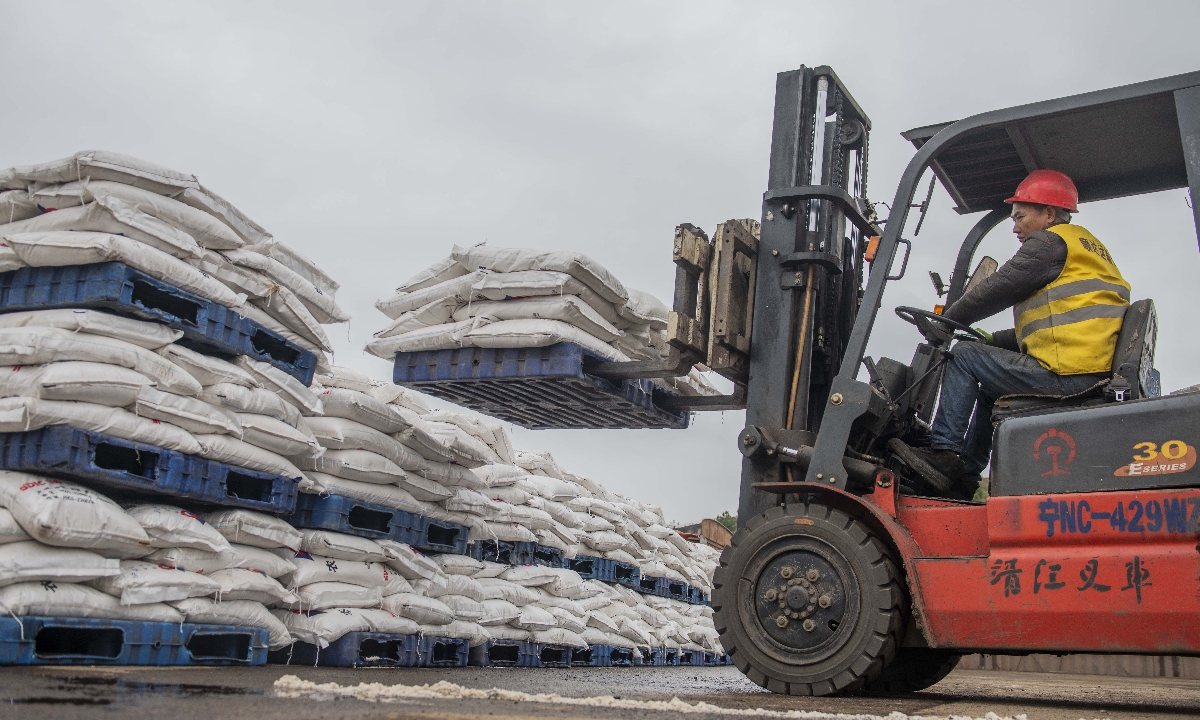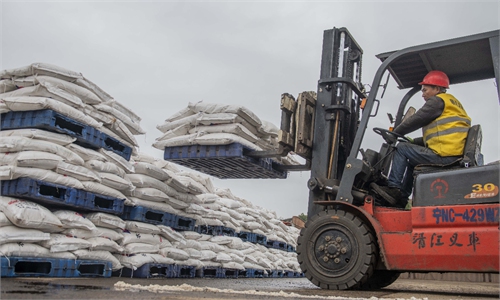
fertilizer Photo: CFP
Global fertilizer prices are skyrocketing amid the conflict between Russia and Ukraine, stoking concerns about food prices and crop yields as the spring farming season approaches in the Northern Hemisphere.
Experts said that although China will also see a fertilizer price hike in the short term, it will not put China's spring farming or food security at risk, as domestic supplies of fertilizers are sufficient.
Russia is the world's largest exporter of nitrogen fertilizer, the second-largest exporter of potash and the third-largest exporter of phosphate. Together with Belarus, the two countries account for 40 percent of global potash exports, experts said. Major buyers include China, Brazil and India.
The Russia-Ukraine conflict has mainly affected the price of potash in China, which has jumped as much as 30 percent in the past week, Yu Lei, an independent industry observer, told the Global Times on Monday.
"There is a strong correlation between the domestic potash fertilizer price and the international market, given the fact that about 50 percent of China's potash relies on imports," Yu said.
China imports 7 million tons of potash annually, of which Russia accounts for a relatively high proportion. In 2021, for example, China imported 2.254 million tons of Russian potash fertilizer, accounting for about 30 percent of total imports.
The price of domestic potash has soared in the past year. As of February 20, the price of domestic East China potassium chloride had broken through 3,600 yuan ($570.6) per ton, a 10-year high and double the price at the beginning of 2021, according to media reports.
In terms of the two other fertilizers -- nitrogen and phosphate -- China can be self-sufficient, and domestic prices are about 30 percent lower than the international market, Yu added.
In response to the rise in international potash prices, China has done a lot of work to increase self-sufficiency. Last year, total domestic production reached 8.6 million tons.
Through nearly a decade of efforts, China's has cut its potash reliance on the international market to 50 percent from 90 percent, Wang Jianjiao, an expert from the Silk Road Academy of Social Sciences, told the Global Times on Monday.
In the face of strong market demand and good profit space, Chinese companies with mineral resources abroad have also increased the output of potassium chloride through technological transformation and new production capacity.
Asia Potash Intl Invst Guangzhou Co, which owns 35 square kilometers of potash mines in Laos, said that the company's potash fertilizer renovation and expansion project went into production at the end of 2021 to reach an annual capacity of 1 million tons.
In the second half of 2021, China adjusted its policy on fertilizer exports, carrying out strict legal inspections of exports, which also helped to ensure domestic supply for spring farming, Wang said.
"Although the price may still rise, all of these efforts have ensured the food security of the country," Wang said.

